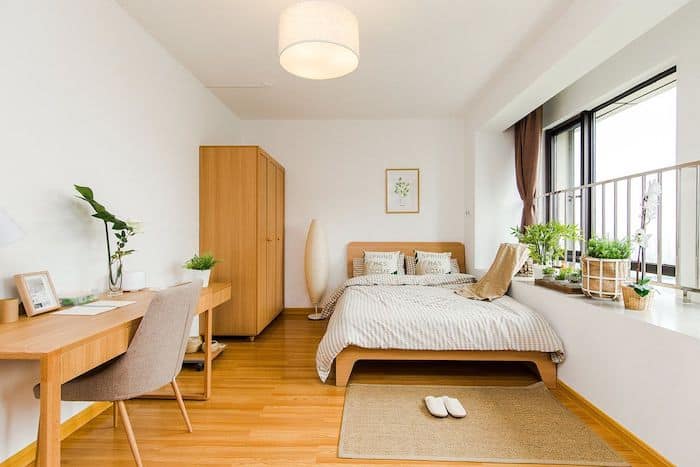
Apartment rental platform Ziroom has over one million rooms in China
Softbank has invested $1.5 billion into a pair of Chinese property startups, as the Japanese venture capital firm takes a gamble on the mainland housing market.
In deals which closed in November last year, Softbank invested $1 billion into apartment rental platform Ziroom, while also injecting $500 million into property listings portal Beike, according to sources familiar with the investments cited in the Wall Street Journal.
Softbank, which closed on the mainland China investments within weeks of taking a more than 75 percent haircut in its $8 billion bailout of WeWork, made its bet on the pair of tech-inspired companies prior to the coronavirus outbreak, which now threatens to disrupt China’s housing market.
During recent months, as WeWork has struggled to achieve profitability, some of China’s largest apartment providers have fought to maintain liquidity amid ongoing losses, with the stock of Ziroom competitor Danke Apartments having lost 13 percent on the New York Stock Exchange since its IPO in January.
Another Ziroom rival, Qingke Apartments has seen its shares slide by nearly one-third since their NASDAQ debut in November. Both companies have yet to turn a profit.
Gaining a Slice of the Apartment Rental Market
Despite the challenges facing other market players, Softbank reportedly invested $500 million in cash in Ziroom four months ago, while also snapping up $500 million in company shares from the company’s founder, Xiong Lin.
The Japanese venture capital firm’s 2019 investment valued the housing rental platform, which is a unit of mainland residential brokerage Lianjia, at $6.6 billion, according to the WSJ account.

Xiong Lin’s Ziroom is one of Softbank’s latest gambles
Leasing property from individual owners that it then renovates and subleases to occupiers, Ziroom has grown to over one million rooms since its inception in 2011, a quarter of a million more than its nearest competitor Danke. Billing itself as a “technology unicorn”, the company’s website is marketed as a platform for matching tenants with available rooms according to a customised algorithm.
Last June, the company was reported to have raised $500 million in new financing led by existing investor New York-based General Atlantic, along with fellow returning backers Tencent and Sequoia Capital China. Warburg Pincus, which co-led a RMB 4 billion investment in Ziroom during 2018, did not reinvest in 2019, according to sources familiar with the company’s funding who spoke with Mingtiandi.
Despite backing from institutional heavyweights, the company’s growth has been dogged by controversy surrounding rooms allegedly contaminated with formaldehyde as well as accusations of that it has collaborated with competing players to fix rates paid to potential landlords.
Making a Bet on an Online Property Portal
Softbank also bet on property listings portal Beike – also known as ke.com – with a $500 million commitment alongside co-investments worth $500 million from investors including Hillhouse Capital Group, Internet titan Tencent Holdings and Sequoia Capital.
The investment valued the two year old portal at around $14 billion, with the firm said to be targeting an IPO in Hong Kong this year at a valuation of between $20 billion and $30 billion, according to the Wall Street Journal.
Just last March, Beike secured $800 million in funding from investors led by Tencent at a RMB 120 billion ($2.9 billion) valuation, according to Chinese media reports.
In the same month, Tencent integrated Beike’s housing services into its ubiquitous social media app WeChat, giving the property portal direct access to WeChat’s one billion monthly active users.
After making a loss in 2018, the firm vowed to become profitable. Financial results for 2019 have not been made public.
Buying into a Turbulent Sector
Government backing and a maturing rental market has lured numerous startups into China’s apartment market over the last three years, with fierce competition spelling trouble for some of the sector’s biggest players since early 2019.
Three-year-old rental housing operator Lejia closed its doors in August and laid off all of its staff after defaulting on credit obligations. During June a long-term rental housing business operated by Guoan Family – a real estate affiliate of state-linked CITIC Guoan Group – was accused by landlords of not paying rent on an apartment that it leases to tenants.
More recently, Danke and Ziroom have come under fire after withholding payments to landlords in the wake of the coronavirus outbreak. The firms imposed a 30-day zero-rent period under instructions from the government, but tenants claimed they were still being asked to pay rent, according to Supchina.
Leave a Reply